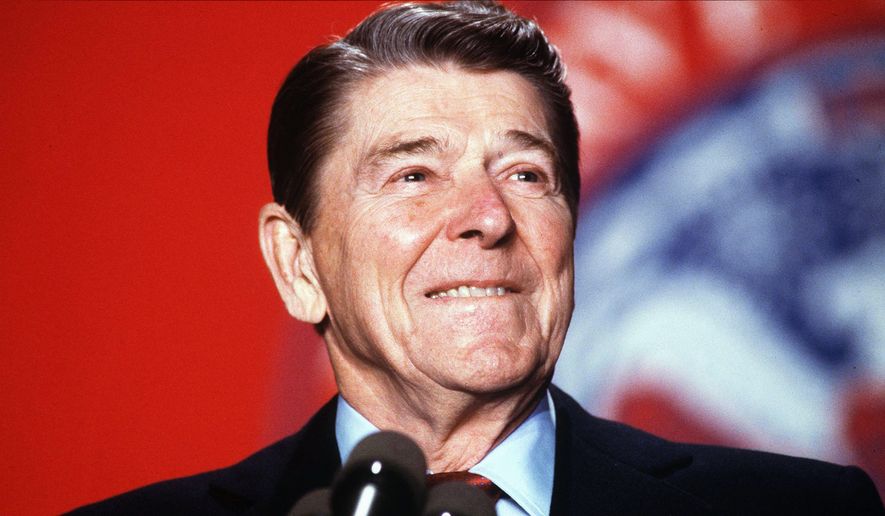OPINION:
When President Reagan traveled to Berlin to mark the 750th anniversary of the city, celebrated at the Brandenburg Gate in front of the Berlin Wall, the most consequential line in his memorable speech nearly didn’t make it into the final draft.
The State Department and the National Security Council cautioned the president that challenging Soviet leader Mikhail Gorbachev to “tear down this wall” would be a provocation. George Shultz and Colin L. Powell told him the remark should be left on the cutting-room floor. So did the president’s chief of staff, Howard Baker Jr., who called it “extreme” and “unpresidential.”
Mr. Reagan took the advice into account, weighed it for what it was worth, and decided to do it his way. He was the president, after all, and they weren’t. The rest, as they say, is history. “General Secretary Gorbachev,” Mr. Reagan said, “if you seek peace; if you seek prosperity for the Soviet Union and Eastern Europe; if you seek liberalization, come here to this gate. Mr. Gorbachev, open this gate. Mr. Gorbachev … tear down this wall.”
This was the uneasy time of glasnost and perestroika, where the Soviet leaders thought they could cling to power by offering a sliver of openness and reform. Mr. Reagan’s challenge was taken seriously, because Mr. Reagan always backed up his words with resolve and determination. He guarded the words with “defenses of unassailable strength.”
It required two years time, but the words delivered on that memorable day had the intended effect. The Wall — an ugly, monstrous metaphor for communist totalitarianism — came tumbling down, liberating East Germans who yearned to breathe free. Once the collapse began, the hunger for liberty spread, and before long it was a hunger that had to be appeased. Tens of millions were freed from the Soviet yoke. Germany was united, and Eastern Europe could chart its destiny without asking Moscow.
Sunday marks the 25th anniversary of the fall of the Wall. A weekend of events will mark the silver anniversary, drawing hundreds of thousands of celebrants. President Obama traveled to Berlin a year ago to give a speech celebrating these great events, and his words have been all but forgotten.
How is it that the Nobel committee awarded a Peace Prize to Mr. Obama for doing nothing, but cannot recognize Ronald Reagan’s pivotal role in bringing down the Berlin Wall? Along with British Prime Minister Margaret Thatcher, Pope John Paul II and Polish labor leader Lech Walesa, the Gipper won the Cold War without firing a shot.
The Oslo-based Nobel committee could right this wrong next October with a posthumous Peace Prize to Mr. Reagan. The organization’s rules bar awarding the prize to the dead, but it has done it twice, anyway. This would be a fine occasion to do it again.




Please read our comment policy before commenting.